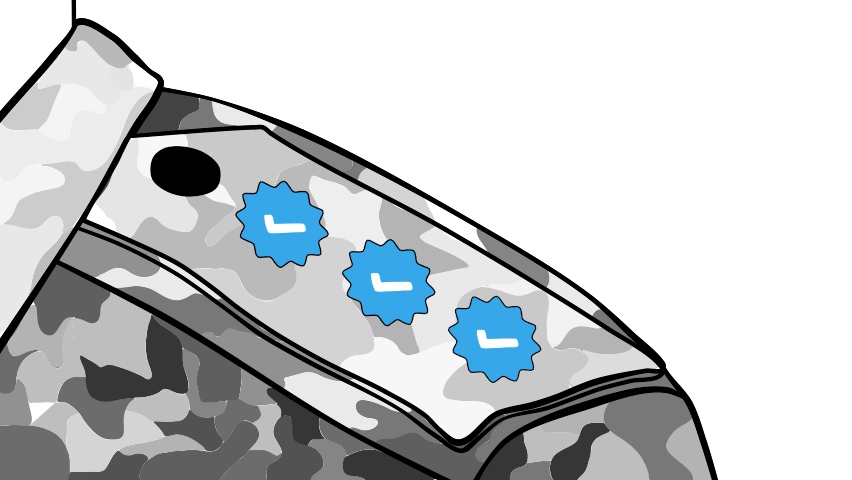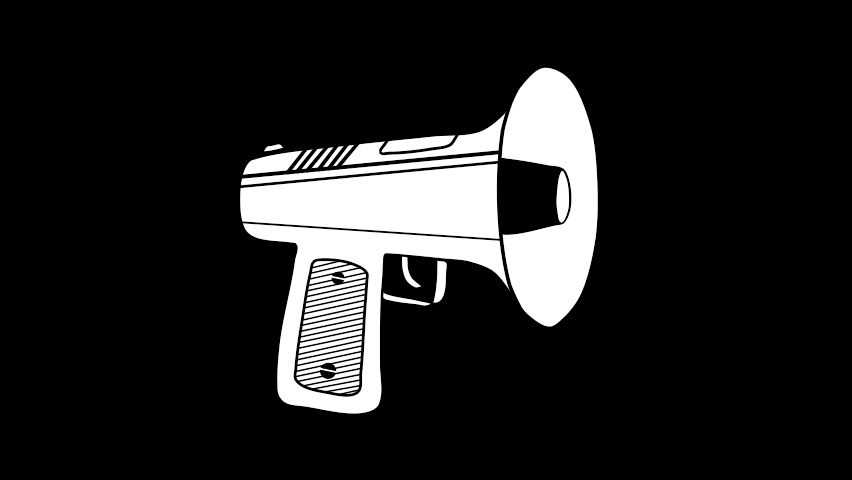Having grown up in the tumultuous political climate of Sudan, Abu Abdelbagi brings a new point of view to media literacy studies, expanding the field into regions beyond the West. Under the mentorship of Associate Professor Ioana Literat, his research at TC centers on Sudan and he’s already being honored for the work at the upcoming International Communication Association conference. The presentation of his scholarship is just as innovative as the subject matter, using illustrations to visualize his complex thought processes. His responses have been edited for clarity and length.

(Image: Abu Abdelbagi)
“I grew up in a highly authoritative environment where only certain trajectories are favored: certain jobs, certain college majors, certain traditions, certain ideologies, and certain points of view. Alternatives were discouraged—and often punished. There was no tolerance for dissonance. Not much room for agency. That was the Sudan that I was brought up in.
Besides violence, the regime used media outlets and the education system to tighten its grip on the Sudanese people, and there was an apparent mismatch between what I always heard about education (how it can be empowering and emancipatory) and what was actually happening. During undergrad, I was an electrical engineer with a remote interest in politics—obediently conforming to the aforementioned trajectories.
However, while I was finishing school, I started working in copywriting and video production, ultimately giving up my engineering career that, thankfully, never started. This line of work helped me understand how media messages are constructed and how that in turn constructs reality.
After learning more about propaganda, disinformation, and the general Sudanese media landscape, I came to see media literacy as a potential approach to engage critically with media and as a key element in fostering democracy and civic engagement, something that is desperately needed in Sudan.
(Image: Abu Abdelbagi)
Finding a framework to explore media literacy
Throughout my time at Teachers College, I’ve been studying how youth in Sudan were civically involved and how they practiced media literacy in a politically intense context before and after the 2018 December Revolution. I found that youth media literacy practices were significantly shaped by the sociocultural, political context of Sudan, and, I realized, were noticeably different from the Western-centric ideals of media literacy.
Indeed, there are several anxieties around media literacy today, including the growing concern about the spread of misinformation and fake news, issues regarding privacy and data security, and the mental health impact of social media. However, these anxieties might look different in other, understudied, contexts.
“As someone deeply invested in this field, I can confidently say that this is exactly the kind of research we need: thoughtful, creative, nuanced explorations that challenge the deeply embedded Western bias of our field” - Ioana Literat, Associate Professor of Communication, Media and Learning Technologies Design
For instance, fake news undermines public trust in institutions, but what if these institutions were already questionable and not publicly elected? What if the political polarization is not between the typical two parties, and is instead composed of many poles that might include armed groups and external stakeholders? And, if a defining element of media literacy is the ability to access media, to which extent should it also be concerned with curbing or limiting that access in order to reduce exposure to “depressing content”? All these questions—and more—invite us to look at media literacy in regions with different sociocultural, political dynamics from the "West."
Studying regions like Southwest Asia and North Africa is one way to decenter the Western focus of the field and further our understanding of media literacy—and perhaps literacy itself. It also brings up much needed conversations about the legacy of colonialism in academia, making room for historically marginalized voices.
(Image: Abu Abdelbagi)
Making room for new voices in research
So now, at the International Communication Association (conveniently themed Reclaiming Authenticity in Communication), I will be presenting recent research that Dr. Ioana Literat and I conducted with Sudanese youth. It challenges the Western focus of media literacy research and education by showcasing the context of Sudan. We did this by inviting Sudanese youth to a participatory mapping process. We asked them to draw their media and information landscapes, which were a reflection of their day-to-day media practices and preferred sources. The findings showed how political instability and economic precarity in Sudan have shaped their understanding and practice of media literacy, and also suggested some gender-based differences in access to information.
Building off my ICA paper, I aim to finish and defend my dissertation in the Spring semester of 2024 (fingers crossed). This project is going to be a collaborative multimodal exploration of media literacy in Sudan. It invites Sudanese media educators and practitioners to come together and think through media making. The goal is to have co-researchers contribute autoethnographies of their experiences with media literacy in Sudan, eventually creating a sort of multimodal anthology.
“[Abu is] always thinking about ways to make a positive impact in his home country. This even shows up in the way he writes, and the way he frames things for the audience—an audience that, significantly, includes his Sudanese peers.” - Ioana Literat, Associate Professor of Communication, Media and Learning Technologies Design
This non-traditional approach is inspired by TC alumnus Nick Sousanis, who wrote and drew his dissertation entirely in comic book form, and Kyle Oliver, who submitted a podcast dissertation. They both make a strong case for the appropriateness of multimodal formats in a scholarly domain, and the power of multimodality as a way of meaning-making. I am really excited about how this dissertation is coming along, and truly grateful to Dr. Literat’s and Dr. [Lalitha] Vasudevan’s continuous support and inspiration.
Finally, I am just really looking forward to helping advance media literacy research and practice in both the U.S. and Sudan through my dissertation and beyond. One project at a time.”
